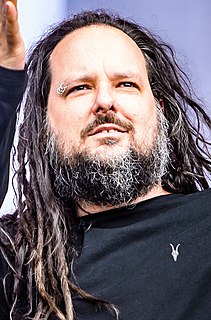A Quote by Warren Buffett
If you invested in a very low cost index fund - where you don't put the money in at one time, but average in over 10 years -you'll do better than 90% of people who start investing at the same time.
Related Quotes
Our standard prescription for the know-nothing investor with a long-term time horizon is a no-load index fund. I think that works better than relying on your stock broker. The people who are telling you to do something else are all being paid by commissions or fees. The result is that while index fund investing is becoming more and more popular, by and large it's not the individual investors that are doing it. It's the institutions.
My advice is if we can't replace Obamacare by ourselves, to go to the Democrats and say this. 10% of the sick people in this country drive 90 percent of the cost for all of us. Let's take those 10 percent of really sick people, put them in a federal managed care system so they'll get better outcomes, and save the private sector market if we can't do this by ourselves. That's a good place to start.
We are living at a time where a handful of people have wealth beyond comprehension - huge yachts, jet planes, tens of billions of dollars, more money than they could spend in a thousand lifetimes. But at the same time, millions of people are struggling to feed their families or put a roof over their heads or find the money to go to a doctor.
Each time I do a trilogy it's ten years out of my life. I'll finish Episode III and I'll be 60. And the next 20 years after that I want to spend doing something other than Star Wars. If at 80 I'm still lively and having a good time and think I can work for another 10 years between 80 and 90, I might consider it. But don't count on it. There's nothing written, and it's not like I'm completing something. I'd have to start from scratch. The idea of a third trilogy was more of a media thing than it was me.
An index fund is a fund that simply invests in all of the stocks in a market. So, for example, an index fund might invest in every single stock or almost every single stock in the U.S. market, it might invest in every single stock abroad, or it might invest in all of the bonds that are out there. And you can make a perfectly fine investing portfolio that mixes equal parts of all three of those.
Nothing highlights better the continuing gap between rhetoric and substance in British financial services than the failure of providers here to emulate Jack Bogle's index fund success in the United States. Every professional in the City knows that index funds should be core building blocks in any long-term investor's portfolio. Since 1976, the Vanguard index funds has produced a compound annual return of 12 percent, better than three-quarters of its peer group.
We are going to rebuild our infrastructure. I would say at least double her numbers and - and you`re gonna really need more than that. We have bridges that are falling down. People,investors, people would put money into the fund. The citizens would put money into the fund, and we will rebuild our infrastructure with that fund.
In the 1960s, if you introduced a new product to America, 90% of the people who viewed it for the first time believed in the corporate promise. Then 40 years later if you performed the same exercise, less than 10% of the public believed it was true. The fracturing of trust is based on the fact that the consumer has been let down.

































